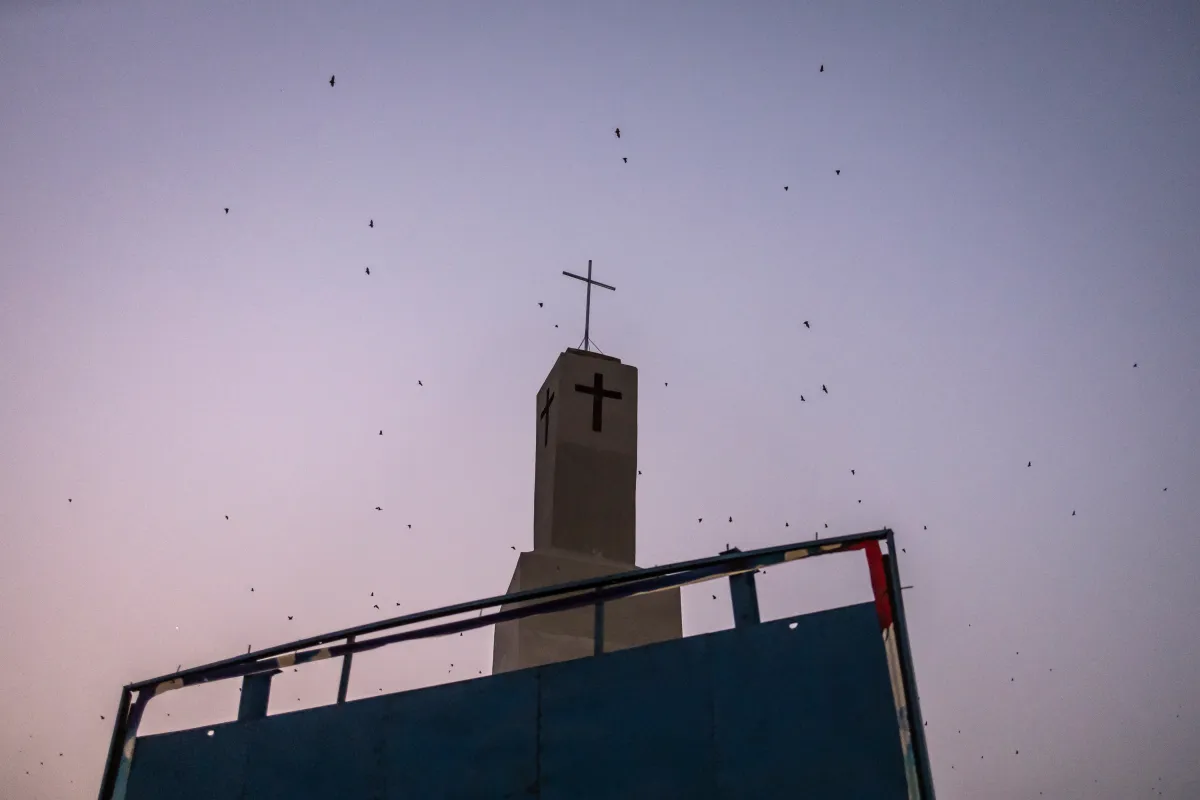
“Guns-a-blazing.”
That’s how President Donald Trump said he will send American forces to rescue Christians in Nigeria. “If we attack, it will be fast, vicious, and sweet,” he promised on Truth Social on the first of this month. “WARNING: THE NIGERIAN GOVERNMENT BETTER MOVE FAST!”
The American president, in a few words, upset not only the government in Abuja but also the one in Beijing, which today dominates the African continent.
“We oppose any country’s interference in other countries’ internal affairs under the pretext of religion and human rights,” said Chinese Foreign Ministry spokesperson Mao Ning on November 4. “We oppose the wanton threat of sanction and use of force.”
Why is China so concerned about Nigeria? “China doesn’t care one way or the other about Christians but is just supporting the Nigerian government to protect its investment interests,” Thomas Riley, former American ambassador to Morocco, told Newsweek.
Trump is showing China that he can change a Beijing-friendly status quo overnight. Moreover, he is establishing a pattern regarding the use of force—and perhaps reorienting his entire foreign policy.
Christians in large numbers are being slaughtered in that West African nation. The amount is in dispute—more than 52,000 Christians were reportedly killed since 2009 and about 7,000 this year according to one advocacy group—and the nature of the killings is also in doubt.
“There’s no Christian genocide happening in Nigeria,” Daniel Bwala, special advisor to Nigerian President Bola Tinubu, posted on X, in response to Trump. “What we’re facing are criminal attacks that sadly affect everyone, no matter their religion.”
Nina Shea, director of the Hudson Institute’s Center for Religious Freedom, disagreed.
“Fulani Muslim militias invade rural Christian villages and kill, rape and destroy indiscriminately,” she told this publication. “While Abuja fights the terror groups in the north, it doesn’t lift a finger to stop the Fulani jihadists, whose special target is the Christian community. It tolerates these brutal attacks.”
The stakes are large.
“Extremism is spreading, threatening to make Africa’s most populous country a failed state,” Shea said.
Most observers assume that, by threatening force, Trump will persuade Tinubu to divert military resources to the Middle Belt states, where the Fulani are attacking Christians. If the Nigerian president does not help Christians, however, Trump can step in and dramatically change outcomes on the ground. He will also alter American foreign policy.
“If Trump acts, the United States would be set on a course to then take on the slaughter of Christians in Sudan, Syria, China and indeed the West Bank and Europe,” Blaine Holt, a retired U.S. Air Force general and former deputy military representative to NATO, told Newsweek. “Would American adversaries then try to spread American resources to their breaking point by hitting Christians the world over and thereby weaken the U.S. before some future world war? No one can possibly envy Trump as he weighs options to rightfully defend the very faith this nation was founded on.”
If Trump in fact uses the U.S. military to rescue Nigerian Christians, he will undermine two widely accepted assumptions.
First, many have assumed that Trump will sharpen his focus on the Western Hemisphere, especially after various media outlets reported that his national defense strategy will reorient the American military to threats originating closer to the homeland. Trump, at an extraordinary meeting of U.S. flag officers in Quantico, Va. on September 30, spoke at length about that region.
Second, analysts assume Trump, concentrating on big-power diplomacy, does not particularly care about values and human rights. An intervention in West Africa to support a beleaguered religious group, therefore, gives American foreign policy a brand new look.
If President Trump does go in with blazing guns, he will also be reinforcing two emerging patterns. First, he has already been using targeted force, bombing important elements of the Iranian nuclear program—Operation Midnight Hammer in June—and striking Venezuelan and other drug boats in international waters beginning in early September.
Trump, therefore, has shown a willingness to hit enemies, especially when important American interests are involved. His marshalling of military assets close to Venezuela suggests he will continue to use American might.
A strike on Fulani militants in Nigeria fits this pattern, although such an action, unlike the two others, would not appear to be related to a core interest of the United States, at least as Trump has so far defined them. Trump, however, is full of surprises, which makes him especially scary to hostile elements around the world.
Second, the American president has been going after China’s friends in the Global South when they have been engaging in abhorrent conduct. Those moves put Beijing, which criticizes everything America does, on the wrong side of so many issues around the world. That looks like an important win in itself.
Gordon G. Chang is the author of Plan Red: China’s Project to Destroy America and The Coming Collapse of China. Follow him on X @GordonGChang.
The views expressed in this article are the writer’s own.
